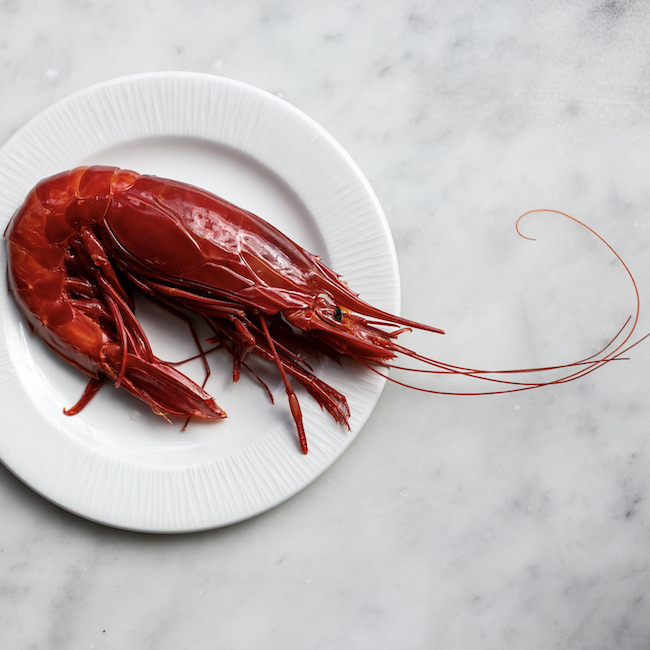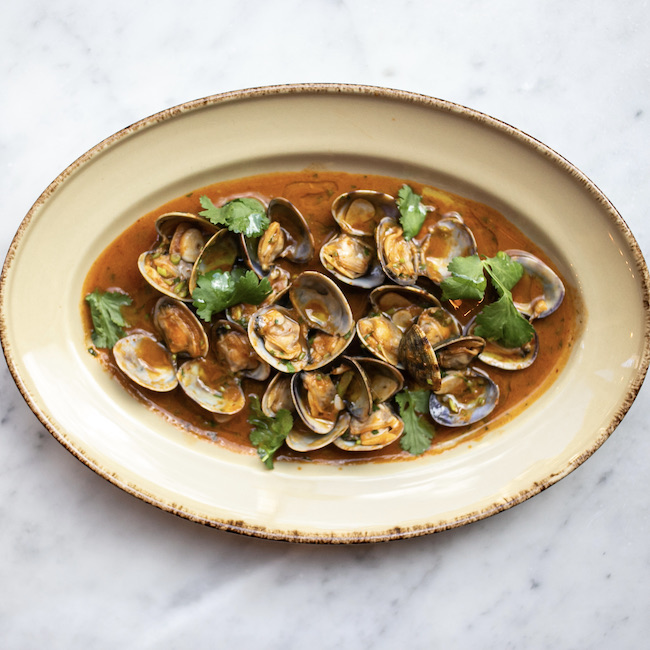by José Pizarro - @jose_pizarro
.png.transform/rendition-xs/image_image%20(1).png)
The chef recalls his story of becoming one of the top ambassadors of Spanish Cuisine in the world and his decisive role in popularizing it in the UK

by José Pizarro - @jose_pizarro
Hailing originally from a beautiful village, Talaván in Cáceres, Extremadura, I have considered London my home for the last 25 years, and I have proudly dedicated my career to bringing the flavours and character of the Spanish kitchen to the UK.
I always wanted to cook. When I was a boy, my mother and grandmother were always in the kitchen. My mother used to make queso fresco (soft white cheese) every morning, as we had cows on our farm. But as a boy, I didn’t go into the kitchen very much. My father didn’t know how to cook – he couldn’t even boil an egg. I loved going to pick vegetables with him. I didn’t have direct contact with cooking itself, but with the produce. At this stage in my life, I had no idea I’d end up as a chef.
In fact, I trained as a dental technician, but while waiting for a job in Seville, I decided to do a cooking course back in Cáceres. During the course, I was offered a job. Then I went to work in a newly opened hotel in Plasencia, which held large events, as I wanted to learn how to do good quality large-scale catering. After this, I went to Madrid, to Chapín de la Reina and El Mesón de Doña Filo, where I learned about “nueva cocina” – innovative techniques, small portions, beautifully presented. It was a dream for me. I met many people, and was encouraged to pursue my dreams in London, which I did.

Seasonality, high quality ingredients and mastery
When I came to London, my cooking philosophy remained the same as it always had been: tapas as they ought to be, made with good products – croquetas with good Iberian ham, calamari fried in good quality extra virgin olive oil. People weren’t used to these flavours. It wasn’t heavy or greasy, flavourless or overcooked, as people thought all Spanish food was. I wanted to show people that by respecting the seasonality and integrity of high quality ingredients, you can cook delicious things at home very simply and quickly.
I also found that people made assumptions about British produce, thinking that it wasn’t compatible with the kind of dishes I was making. But I wanted to prove them wrong there too: British beef and lamb are both wonderful. I get my lamb from a farm in Tenterden, and my beef comes from Scotland. British asparagus is unlike any other I’ve ever tasted. I’m a great believer that if there are good ingredients in the country where you are, you should use and celebrate them.
I was also keen to introduce English people to wines other than Rioja. Now people know Rueda, Albariño, Ribera del Duero: once people trusted me, I could suggest they try a new wine.

A Spanish-flavoured travel back to childhood
Through my restaurants, books, products, TV appearances and events over the years, I have really come to see that British people are really open to getting to know new cuisines and learning about the backgrounds of products and recipes. It’s been an honour and a privilege to show people that tapas really is for all, and that home cooks don’t have to be scared off by the idea of cooking lots of dishes – it’s all in the prep & keeping it simple.
For me, like most Spanish people, I am still extremely close to my family and my roots. My most recent cookbook, The Spanish Home Kitchen, is all about recreating the dishes of my childhood, made mostly by my mother, and about celebrating the importance and joy of these deep memories. At its heart, I believe that cooking connects us to our childhoods and our families in very powerful ways, and that is something that transcends countries and borders. Regardless of where we might be from, if people take away one thing from my cooking, I hope it’s the knowledge that the simple act of preparing a meal with love can connect you to loved ones past and present in a very meaningful way.